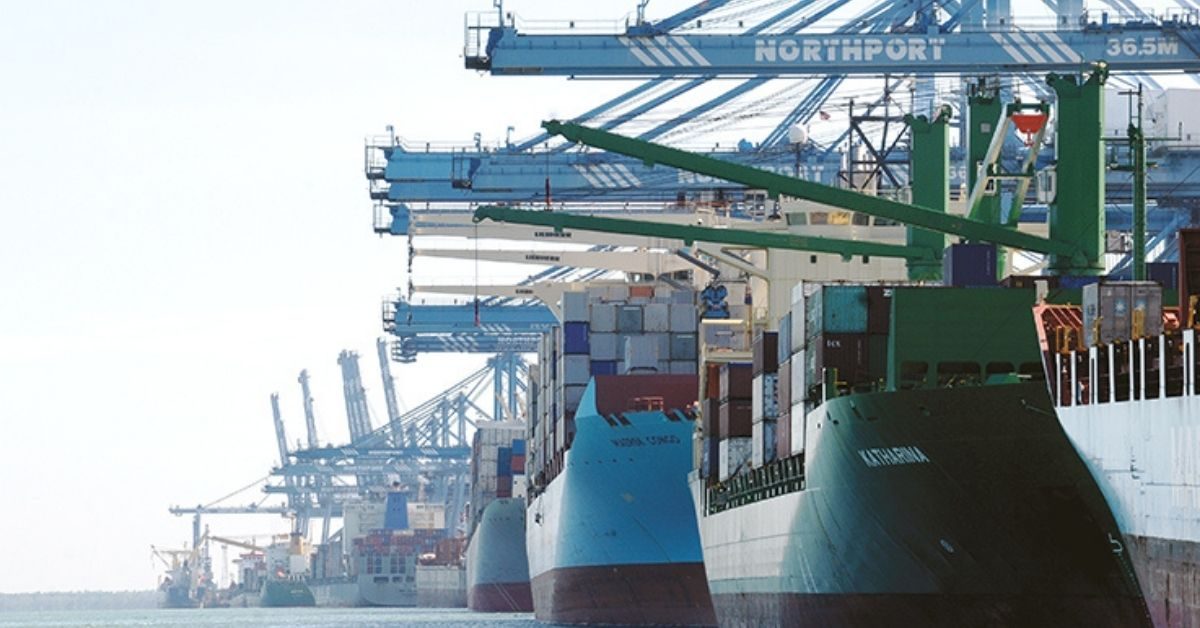THE Malaysian National Shippers Council (MNSC) is again asking for intervention so that shippers can carry out logistics and warehousing works during the current Movement Control Order (MCO) to ease congestion.
Chairman Datuk Dr Andy Seo appealed to the Ministry of Transport (MoT) to intervene so that shippers, who are currently classified as non-essential by the Ministry of International Trade and Industry (MITI), be allowed to clear the rising congestion at logistic centres for both import and export.
He said operators need a window for activities involving logistic and warehouse operations, which will involve minimal manpower. They were given the same opportunity last year when the first MCO was implemented.
“Based on the similar situation in March to April last year, failure to allow companies to clear import shipments from ports and export shipments from factory warehouses to meet shipment deadlines will lead to port and airport congestion.
“Non-essential goods that have been imported before the implementation of the MCO and arrive in ports or airports will not be able to be cleared as manufacturers cannot receive containers at the factory warehouse,” he told The Malaysian Reserve.
He said while transport and logistics services that support ports and airports are deemed as essential services and allowed to continue to operate during this Full MCO (FMCO) period, shippers have been overlooked.
At the moment, shippers that do not fall under essential goods and are not approved to operate by MITI, nor the nine other ministries and agencies, will be required to cease all operations including production and all warehouse and logistics activities to clear import and export containers during the FMCO period.
Only cargo upon arrival in ports can be moved out of the ports if they have been classified as essential goods and approval has been obtained from the 10 ministries and agencies.
Seo said non-essential goods for export that have been ordered by international buyers before the implementation of the MCO and expected to be shipped will now sit idle in warehouses and this is highly detrimental to an export nation such as Malaysia.
In addition, due to the short notice, the manufacturers of non-essential goods will have to bear additional booking cancellation fees imposed by shipping lines due to the inability to export, he added.
During MCO 1.0, Seo said MoT introduced a three-day window period of exemption to clear both import and export containers to ease congestion at the terminals once the ports reached 75% capacity utilisation.
“The three-day window period was not sufficient as some of the manufacturers have high cargo volume for example 30-40 containers which are not possible to be cleared within the time frame.
“In addition, manufacturers had to contend with issues of limited prime mover and driver during this critical period to remove the containers during the short period of time,” he added.
As manufacturers were not able to remove cargo from ports and from the containers due to MCO 1.0, companies were subject to high detention and demurrage (D&D) charges by shipping lines that were unwilling to waive the charges or offer a significant discount.
Seo said the average D&D charges are about RM168,000, while the highest D&D charges were recorded at RM800,000 from March-April 2020.
Based on MNSC’s survey in February, the response gathered from shippers indicated that the freight rates have skyrocketed to a historic level of between US$6,000 and US$10,000 (RM41,300) per container compared to US$55 to US$300 per container before the pandemic.
Unless something is done and done now, the freight rates are expected to continue to increase, forcing foreign buyers to delay their orders, hoping that the shipment costs will decrease in coming months — thus shippers are losing out on export revenue.
“Shippers face difficult decisions daily on whether to ship and incur high export costs, or not to ship and lose their export markets.
“While shippers are struggling with lengthening port delays, cargo rollovers, soaring freight rates, they have been recently subject to an array of equipment and congestion surcharges including Port Congestion Surcharge, Equipment Maintenance Fee and Deficit Equipment Surcharge imposed by the shipping lines. This situation is expected to continue at least until the end of the year,” he explained.
MNSC also urged major Malaysian ports to grant, similar to last year during MCO 1.0, a waiver of the storage and removal charges for containers and break-bulk cargoes (non-essential goods) on a case-by-case basis.
Seo said ports should waive the storage and removal charges during FMCO as shippers are once more unable to move their cargo to and from the ports.
“We request, however, that the waiver of the storage and removal charges be extended to cover the duration of the containers remain uncleared from the ports and not on a caseby-case basis as implemented during MCO 1.0. This facility will assist both shippers and the logistics industry to cope during this challenging time,” he said.
MNSC calls on the government to carry out a mass immunisation programme through a parallel vaccination implementation by private hospitals and clinics, and hopes that the vaccination for the economic sectors will be expedited to achieve faster herd immunity.
Source : The Malaysian Reserve







